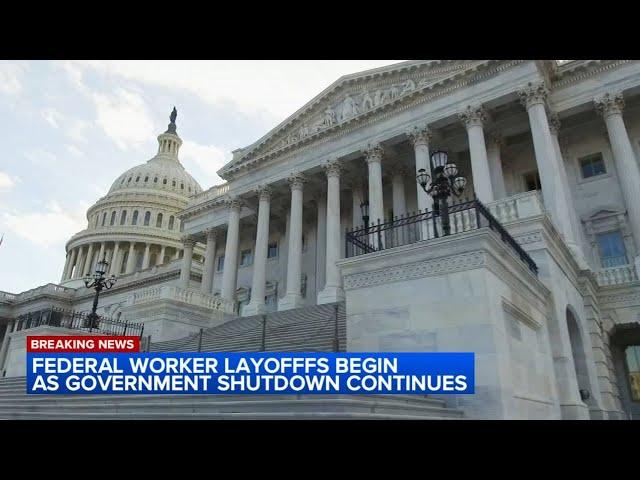The latest government shutdown continues to disrupt federal operations as Congress remains deadlocked over funding. In a dramatic turn, former President Donald Trump has pledged that the military will continue to receive pay despite the impasse. Meanwhile, the Senate has decisively rejected proposed funding deals, signaling a prolonged stalemate and raising concerns about the impact on government services and employees. This evolving situation highlights deep partisan divisions and the urgent need for a resolution.
Government Shutdown Latest Impact on Federal Agencies and Public Services
As the government shutdown persists, several federal agencies have entered a state of partial or full closure, significantly disrupting public services nationwide. Essential services related to national security, air traffic control, and law enforcement continue to operate, albeit under strained conditions. However, non-essential functions such as national parks, visa and passport processing, and certain health services have experienced suspensions or severe limitations, causing widespread inconveniences. Citizens face delays in administrative procedures, which further escalate frustration amid the uncertainty of the shutdown’s resolution.
Key impacts on federal operations include:
- Military personnel remain on active duty with promised back pay, following executive assurances.
- Many civilian federal workers are furloughed, leaving thousands temporarily unpaid and sidelined.
- Public assistance programs see interruptions, affecting vulnerable populations dependent on timely support.
- Regulatory and oversight activities are largely on hold, potentially delaying governmental accountability.
| Agency | Status | Primary Impact |
|---|---|---|
| National Park Service | Closed | Visitor access denied |
| Transportation Security Administration | Operating | Staff working without immediate pay |
| Department of State | Limited | Visa processing delayed |
| Food and Drug Administration | Partial | Inspection backlogs |
Trump Vows Military Will Continue Receiving Pay Despite Funding Gaps
In the face of an escalating federal government shutdown, President Trump assured that military personnel will not experience lapses in their paychecks despite ongoing funding disagreements in Congress. This commitment comes as lawmakers grapple with budget approval, causing significant disruptions across various government sectors. The administration’s promise aims to alleviate concerns among service members who serve on the front lines of national security, emphasizing the importance of morale during uncertain times.
Meanwhile, the SenateŌĆÖs recent rejection of proposed spending deals has deepened the impasse, leaving many federal programs in limbo. Key points surrounding the fallout include:
- Non-essential government services halted
- Delay in processing of some civilian federal employee payrolls
- Military operations prioritized for continued funding
- Negotiations expected to resume with heightened urgency
| Government Sector | Status | Expected Impact |
|---|---|---|
| Military Personnel | Pay Guaranteed | Maintained morale, uninterrupted service |
| Civilian Federal Employees | Potential Delays | Payroll uncertainty, operational disruptions |
| Public Services | Halted | Suspended programs, public inconvenience |
Senate Rejects Proposed Deals Creating Stalemate in Budget Negotiations
The Senate’s failure to approve key budget agreements has plunged the negotiations into a critical impasse, raising alarms over a potential government shutdown. Despite intense discussions, several proposed deals, aimed at securing bipartisan support, were rejected primarily along party lines. Lawmakers cited unresolved issues including funding priorities and allocations for defense and social programs as sticking points preventing consensus. This deadlock threatens to halt federal operations unless a resolution is swiftly reached.
In response to the mounting uncertainty, former President Trump has publicly assured that military personnel will receive their paychecks regardless of the budget stalemate. This commitment underscores the administration’s focus on maintaining defense readiness amid political gridlock. Meanwhile, Capitol Hill remains embroiled in debate, with attempts to reopen negotiations stalled by diverging demands. Key points of contention include:
- Disagreements over defense spending increases
- Controversies surrounding social welfare funding
- Opposition to proposed revenue adjustments
- Negotiation deadlines rapidly approaching
| Proposal | Support | Opposition | Status |
|---|---|---|---|
| Defense Budget Increase | Republicans | Democrats | Rejected |
| Social Program Funding | Democrats | Republicans | Rejected |
| Revenue Adjustment Plan | Mixed | Mixed | Rejected |
Experts Recommend Bipartisan Approach to Prevent Prolonged Government Closure
Amid escalating tensions on Capitol Hill, specialists in governance and policy stress the critical need for a bipartisan approach to mitigate the risk of further government shutdowns. Analysts point out that partisan deadlock undermines public trust and disrupts essential services, urging lawmakers to prioritize cooperation over political advantage. ŌĆ£Sustained closure impacts everything from national security to healthcare,ŌĆØ noted a former White House advisor, highlighting the wide-reaching consequences of inaction.
Experts recommend these key strategies to promote collaboration:
- Regular cross-party dialogue: Establishing routine bipartisan meetings to negotiate budget agreements early.
- Transparent communication: Ensuring the public and stakeholders are informed to reduce misinformation and panic.
- Contingency planning: Developing non-partisan fallback funding measures to maintain government operations.
| Key Benefit | Potential Impact |
|---|---|
| Enhanced Stability | Continuous government function during fiscal disputes |
| Increased Public Confidence | Improved trust in federal institutions |
| Economic Protection | Reduced financial strain from service interruptions |
The Way Forward
As the government shutdown continues with no immediate resolution in sight, tensions remain high on Capitol Hill. President TrumpŌĆÖs pledge to ensure military personnel are paid underscores the administrationŌĆÖs efforts to mitigate the impact on critical services. Meanwhile, the SenateŌĆÖs rejection of proposed funding deals prolongs the stalemate, leaving federal operations in limbo. Lawmakers face mounting pressure to reach a bipartisan agreement and restore government functions before the fallout deepens further. USA Today will continue to monitor the situation and provide updates as developments unfold.




